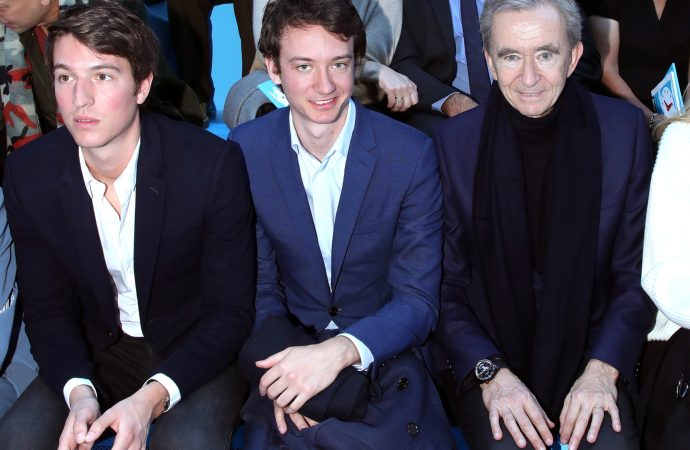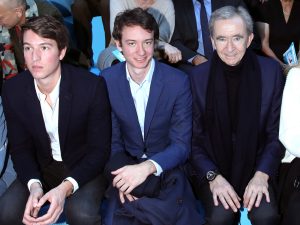Bernard Arnault, the influential figure behind the luxury conglomerate LVMH Moët Hennessy Louis Vuitton SE, has made headlines with his recent decision to appoint his son, Frédéric Arnault, as the head of the family holding group. This strategic move marks a significant shift in leadership dynamics within one of the world’s most renowned luxury goods
Bernard Arnault, the influential figure behind the luxury conglomerate LVMH Moët Hennessy Louis Vuitton SE, has made headlines with his recent decision to appoint his son, Frédéric Arnault, as the head of the family holding group. This strategic move marks a significant shift in leadership dynamics within one of the world’s most renowned luxury goods companies. In this article, we delve into the implications of this decision, analyzing its potential impacts on LVMH and the wider luxury industry.
The Ascendancy of Frédéric Arnault
Frédéric Arnault’s appointment as the head of LVMH’s family holding group represents a continuation of the family dynasty within the company. Born into one of the wealthiest families in the world, Frédéric has been groomed for leadership within LVMH from an early age. Educated at prestigious institutions and exposed to the intricacies of the luxury business through internships and executive roles within the company, Frédéric embodies the next generation of Arnault leadership.
Implications for LVMH
Bernard Arnault’s decision to pass the baton to his son carries significant implications for LVMH’s future trajectory. As a conglomerate encompassing over 70 luxury brands, including Louis Vuitton, Christian Dior, and Moët & Chandon, LVMH’s strategic direction is pivotal to the entire luxury industry. Frédéric’s leadership style and vision will undoubtedly shape the company’s growth strategies, brand portfolio management, and global expansion efforts.
Comparative Analysis: Bernard vs. Frédéric
To better understand the potential impacts of this leadership transition, let’s conduct a comparative analysis of Bernard Arnault’s and Frédéric Arnault’s leadership styles and approaches:
| Criteria | Bernard Arnault | Frédéric Arnault |
|---|---|---|
| Experience | Decades of experience in the luxury | Limited experience at the executive level, |
| industry, with a proven track record | but exposure to the industry from a young | |
| of driving growth and innovation. | age. | |
| Leadership Style | Known for his hands-on approach and | Likely to bring a fresh perspective and |
| decisive leadership. | embrace digital transformation. | |
| Global Vision | Instrumental in LVMH’s global | Expected to continue expanding LVMH’s |
| expansion, particularly in emerging | presence in new markets, especially | |
| markets like China. | in Asia. | |
| Innovation | Prioritizes innovation across LVMH’s | Likely to focus on leveraging technology |
| brand portfolio, driving creativity | and innovation to stay ahead in a highly | |
| and differentiation. | competitive market. |
Conclusion
Frédéric Arnault’s appointment as the head of LVMH’s family holding group marks a significant milestone in the company’s history. As he steps into this role, Frédéric faces the challenge of upholding LVMH’s legacy of excellence while navigating an increasingly complex and competitive luxury landscape. With his fresh perspective and digital-savvy approach, Frédéric has the potential to lead LVMH to new heights of success, shaping the future of the luxury industry in the process. Only time will tell the full extent of his impact, but one thing is certain: the Arnault dynasty’s influence on LVMH is set to continue for generations to come.

















